Water is a vital part of almost every living creature’s requirements for survival. But one question that crops up is do insects drink water?
So in this article, we’re going over why, how, when, and which insects drink water. But with a touch of arachnids and a few other species added in to give you some better ideas.
Here’s a quick summary.
Yes, insects do drink water but how they obtain water does vary depending on their diet. Herbivorous insects feed on plants that provide the majority of their water needs. Carnivorous insects obtain water from the flesh they eat.
So in general, yes, almost all insects, like many other creatures, need water according to their bodily requirements …and they have different ways to obtain sufficient water to operate.
You might also like to know whether insects take fall damage. Or read on to discover more about whether insects drink water.
Why insects drink water
Insects need water primarily for hydration. However, there are many other functions of an insect’s metabolic system that needs to be performed in the presence of water, like; digestion, mating, and excretion.
The demand for water for different insects largely depends upon the area they inhabit. In general, aquatic insects do not have an issue …as water is in plentiful supply.
In severe dry conditions, the water requirement for most insects increases, and insects normally turn toward more watery foods such as plants or seeds, as well as gravitate more toward water-abundant environments for wider availability of water.
How insects drink water
Insects usually drink in two distinct ways. We can simply class these methods as lapping, and sucking:
- Lapping: is a kind of act chewers mostly perform using their tongue-like structures as in the case of ants, and wasps. It is akin to a dog or cat lapping at water bowl. In this method, the liquid is physically transferred to the insect’s mouth.
- Sucking: This is performed similarly to how humans suck via a straw. Vacuum pressure is applied to draw the liquid up to the mouth and is mostly undertaken by insects with suckers, as their oral parts form a long tubular structure. Insects like bloodsuckers and honeybees use this method.
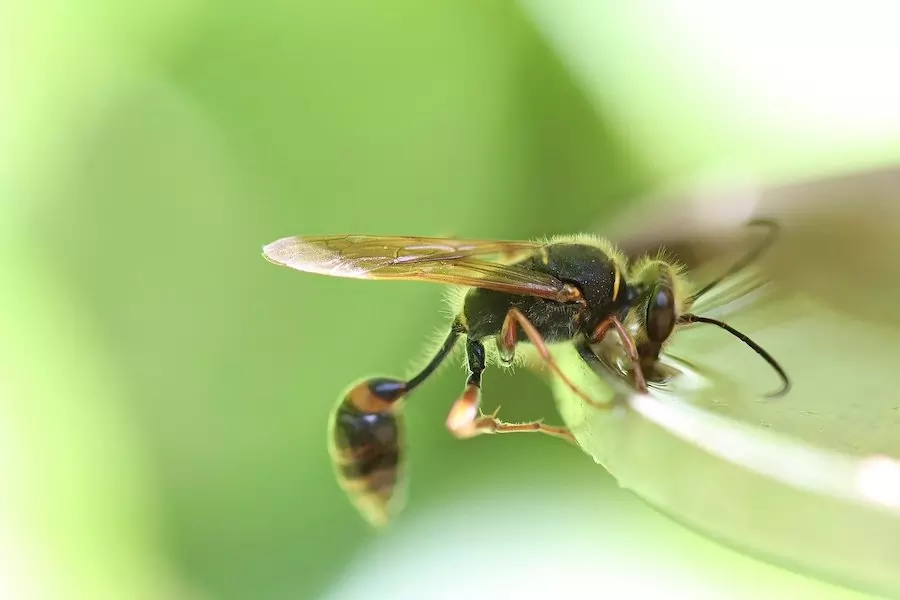
Do insects drink water – How much
The amount of water an insect drinks depends mostly upon its size.
Larger insects have larger metabolic systems and cell reactions taking place inside their bodies.
Therefore, they require larger quantities of water, generally. Thus providing a specific amount across a range of insects is very difficult as there are millions of insect species on the planet.
A study conducted in 2003 measured the rates of fluid intake in ants, subsequent estimates stated that an average ant can drink around 1/4 to 1/5 of a single drop of water …in a single sitting. That’s 6-8 microliters for any of you science nerds.
How do chewers and suckers drink water?
In simple terms, there are two types of insect mouths; “chewers” and “suckers”.
Chewers are those having specialized mouthparts to chew and bite the prey. However, suckers have special tubular, long oral structures that are specialized for sucking.
- Chewers get their water content from chewing the food items either from plant leaves or fruits and seedlings. They cannot drink water directly from a water source because of their specific mouth structures.
- Suckers can draw their water content either directly from the edges of ponds, lakes or dewdrops, etc. Or by sucking blood, nectar, and various secretions of plants and animals.
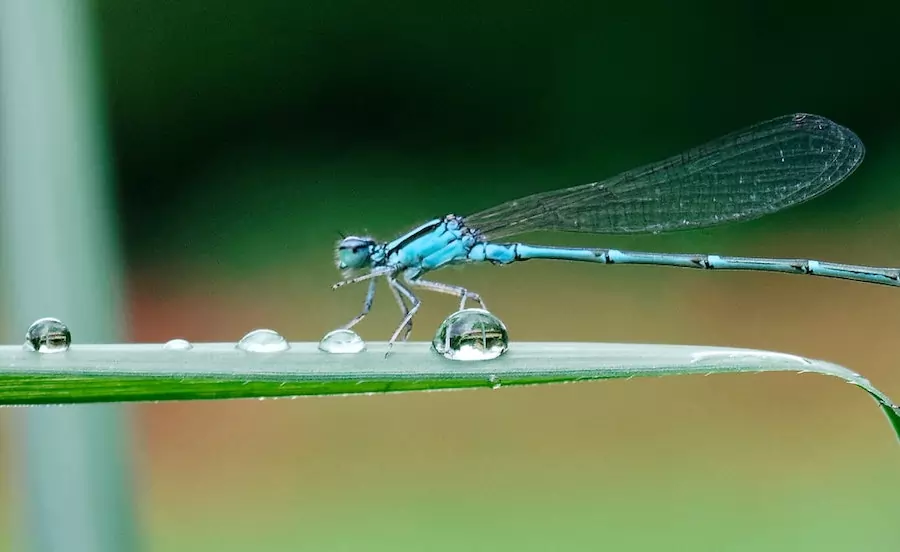
Do herbivorous insects drink water?
Herbivorous insects drink water – but not in excess quantity as the plants as well as fruits upon which they mostly feed contain sufficient hydrating nutrients.
Do carnivorous insects drink water?
Carnivorous insects do drink water to balance their water levels and carry out internal metabolic processes.
These insects do not get sufficient water from their food source, therefore they also get water from general contact with water such as rain, from plants, and in some cases, fruits.
How a spider drinks water
Spiders need water to function normally, according to their size.
- A spider may drink water by consuming moisture on its webs,
an Australian whistling spider covers itself with a layer of its web to capture its prey, raindrops, and moisture in the air. This covering also keeps the spider humid and cool.
- The people who keep spiders as pets in their houses have to provide a dish or cup of water to the spiders. They can also be given a damped or moist sponge.
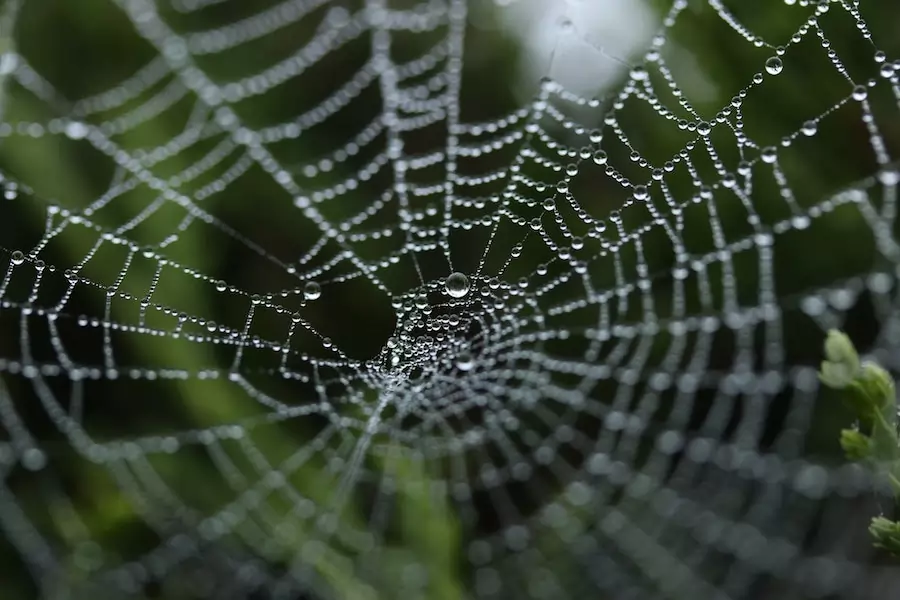
Here’s some information about whether spiders come out at night.
How ants drink water
Ants like other insects also need water, although it’s one of the very less often observed phenomena. These types of insects, of course, need water in small amounts.
Ants use a combination of mouthparts for drinking.
It holds the liquid using its hypopharynx, and transfers it by using a part named the glossa. And finally drinks it using its labium …which we can loosely refer to as the ant’s tongue.
Moreover, Ants gather feathers and other debris around their nests which can store dew drops for them in the morning. Plus, they can take their water nutrients from their food directly or from animal or bird waste as well.
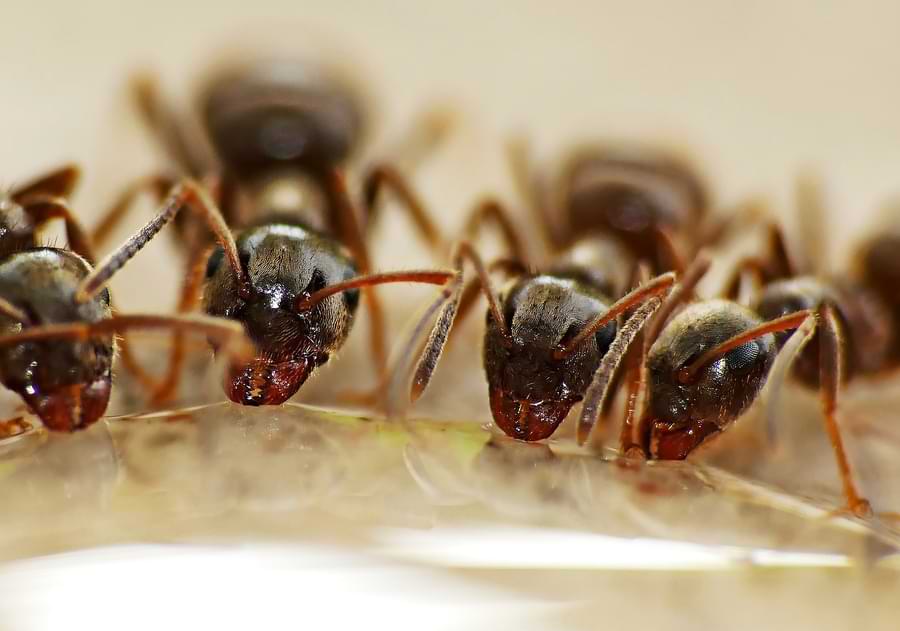
How a scorpion drinks water
Scorpions and other pincer insect species take their necessary hydration by using their pincer claws. They shift the water droplets, according to their need, from the water source to their mouths, using the pincers.
How a wasp drinks water
It has been reported that wasps use a tongue-like structure to take in water and other nutrients.
Some varieties of wasps are seen drinking from left-over soda drops in a glass or from the side of soda cans.
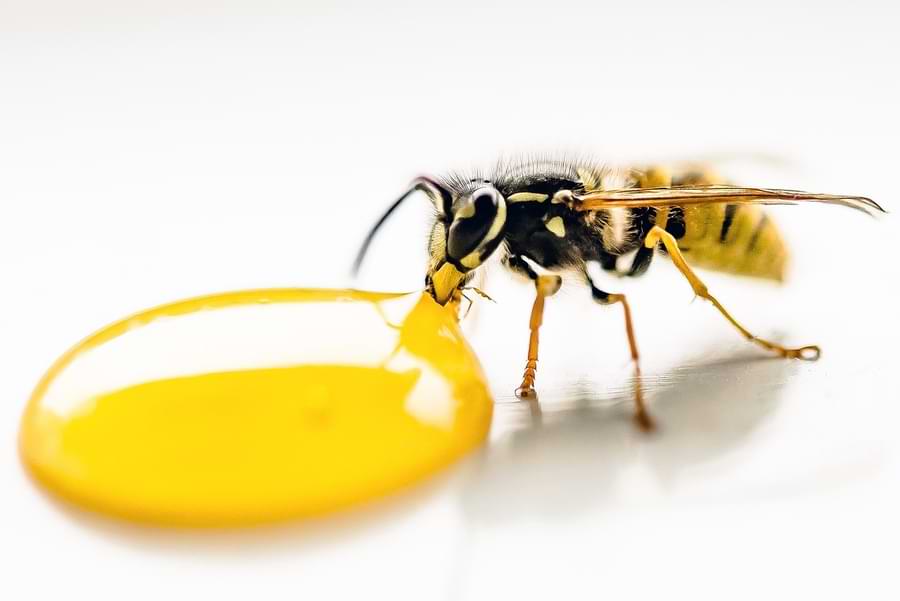
Which insects do not drink water?
There are no reported insects that do not need water to some degree. Almost all the insect species studied to date require water for their body metabolism.
Therefore, almost all insects take hydration from their food sources or directly by sucking and licking.
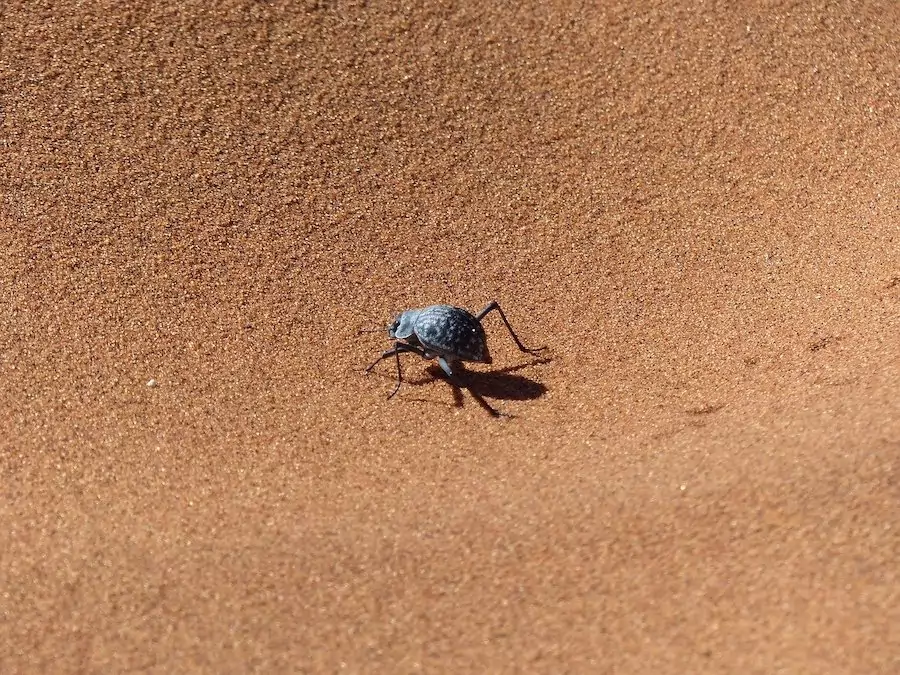
Here’s a list of animals that live in the desert.
Do insects urinate?
Insects are mostly uricotelic organisms, so their body cannot survive a net loss of water, therefore they remove their nitrogenous wastes as uric acid, which requires a minimum loss of water.
So we can say that they excrete but not urinate.
However, ammonotelic and ureotelic insects may also urinate if they inhabit a stable hydrated environment.
| Insect Type | Habitat | Water loss / 1g nitrogen removal |
|---|---|---|
| Ammonotelic | Hydrated | 500 ml |
| Ureotelic | Stable | 50 ml |
| Uricotelic | dry | 1 ml |
Can insects survive without water?
Yes, insects can survive for some time without water intake depending on their diet. The length of time depends on the environment and how much hydration they obtain from their food.
Insects in deserts have adapted to survive longer. Larger insects supplement their diet with more water.
Insects require water for their cell metabolism. Without it, the insect will die.
Studies have revealed that water bugs and cockroaches can survive 1-2 weeks without water in a dry environment. However, this amount of time depends on the species, habitat, temperature, and atmospheric pH.
Do insects drink water – more wildlife help
We hope this has provided you with a good overview of the question “do insects drink water”. Be sure to check out our other articles on Ranger Planet.

